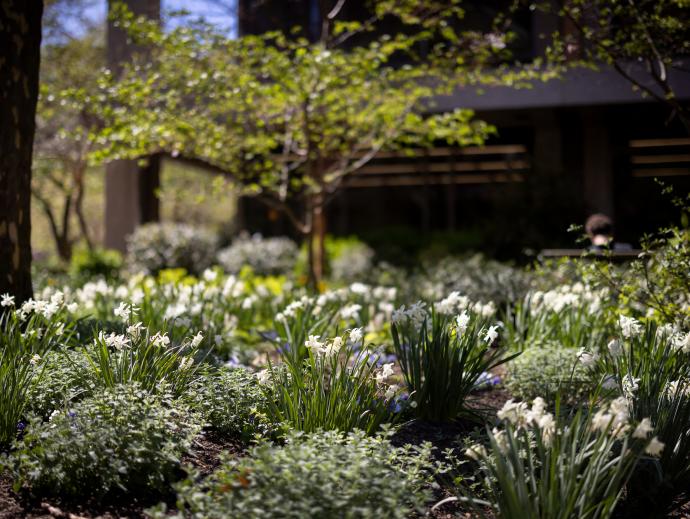Caring for the Campus Landscape with an Ecological Mindset

The Ecological Landscape Stewardship Plan, developed in 2018, offers a framework for the Division of Facilities and Real Estate Services to design, maintain, and celebrate the beauty of the campus landscape with an emphasis on its role as a balanced ecological system.
Caring for the Campus Landscape with an Ecological Mindset
The Ecological Landscape Stewardship Plan, developed in 2018, offers a framework for the Division of Facilities and Real Estate Services to design, maintain, and celebrate the beauty of the campus landscape with an emphasis on its role as a balanced ecological system.

Penn is an undoubtedly urban university, firmly integrated into West Philadelphia. But that doesn’t mean it’s not also part of a natural system, its trees, soils, and wildlife contributing to and interacting with an environment that does not end at the campus borders.
Penn’s Climate and Sustainability Action Plan—currently in its 3.0 version—lays out the University’s commitment to prioritizing environmental sustainability. A key facet of that commitment entails how the campus itself is maintained. That’s where the Ecological Landscape Stewardship Plan (ELSP) comes in.
The report, published in 2018, lays out a framework for managing the landscape at Penn using a holistic approach. Crafted by a team of experts in landscape architecture and ecological consulting with guidance from Penn staff and faculty, in particular the Division of Facilities and Real Estate Services’ (FRES) Office of the University Architect and Operations and Maintenance, the report provides recommendations in four key areas: planning, design, and construction; maintenance practices; administrative structure; and outreach.
“We wanted to look at ecology from the beginning, starting with how we planned and designed projects,” says Chloe Cerwinka, Penn’s landscape planner FRES. “But we’re not confining ourselves to that. It’s about taking an ecological framework toward all of the different aspects of how we care for the landscape.”
Read the full article at Penn Today
by Katherine Unger Baillie
April 18, 2023